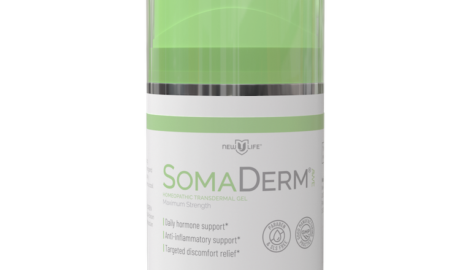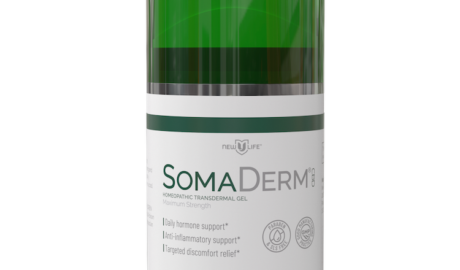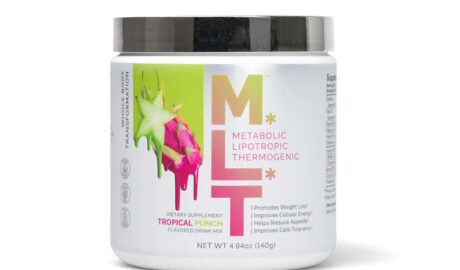President-elect Donald Trump said in a new interview that he would consider altering childhood vaccination programs in the United States and questioned whether vaccines cause autism—a widely disproven claim.
When asked in an interview for TIME’s 2024 Person of the Year whether he would approve of an end to childhood vaccination programs, Trump said he would have a “big discussion” with Robert F. Kennedy Jr., the vaccine skeptic he has tapped to run the U.S. Department of Health and Human Services (HHS). “The autism rate is at a level that nobody ever believed possible,” Trump continued. “If you look at things that are happening, there’s something causing it.”
Trump did not explicitly say in the interview that vaccines cause autism, a false claim that traces back to a retracted study from the 1990s. When pressed on the issue, Trump said his administration will complete “very serious testing,” after which “we will know for sure what’s good and what’s not good.”
But merely by suggesting that there may be a connection between vaccines and autism, Trump has reaffirmed his alignment with the misinformation that has for years fueled anti-vaccine movements.
The origins of a debunked claim
It’s true that autism is diagnosed much more frequently now than in the past—but not because vaccines are causing the condition. Researchers have explored possible reasons for the uptick, including rising parental ages and environmental triggers. But much of the increase, research suggests, stems from changes to diagnostic criteria, widespread awareness of the condition, and improvements in screening. Detection jumps have been particularly steep among children of color, girls, and young adults, all of whom have historically been diagnosed less frequently.
Why do vaccines get dragged into the discussion? In 1998, British gastroenterologist Andrew Wakefield published a study in The Lancet, reporting an apparent association between the measles, mumps, and rubella (MMR) vaccine and an increased risk of autism. The research sparked widespread concern about the safety of childhood vaccination.
In the years following, however, multiple other studies refuted that claim, finding no evidence of a connection between MMR vaccination and autism. And in 2004, 10 of Wakefield’s original co-authors published a statement saying their data were “insufficient” to prove that the MMR vaccine causes autism. It also came to light that Wakefield had not properly disclosed a conflict of interest: he was a paid adviser in lawsuits brought by families allegeding vaccines had harmed their children.
In 2010, more than a decade after it was originally published, The Lancet officially retracted the paper. At the time, the journal’s editor told The Guardian that the study’s conclusions were “utterly false.” The same year, Wakefield lost his U.K. medical license, with regulators saying he had acted “dishonestly and irresponsibly” in his research.
Even though Wakefield’s study has been widely debunked and refuted, and modern studies consistently show that shots are safe, the idea that vaccines are linked to autism persists, without evidence, among some vaccine skeptics—including Kennedy who, if confirmed, will run the federal health agencies responsible for vaccine approvals and recommendations.
Trump’s previous anti-vaccine stance
Trump has questioned the safety of childhood vaccines and mused about a possible link to autism for more than a decade. “When I was growing up, autism wasn’t really a factor,” Trump said in a 2007 interview with the South Florida Sun Sentinel. “And now all of a sudden, it’s an epidemic. Everybody has their theory. My theory, and I study it because I have young children, my theory is the shots. We’ve giving these massive injections at one time, and I really think it does something to the children.”
He has repeated similar claims on social media and in other interviews. In 2015, Trump boasted that he had never gotten a flu shot. “I don’t like the idea of injecting bad stuff into [my] body, which is basically what they do,” he said on a radio show.
During his first term as president, however, Trump oversaw Operation Warp Speed, a historic effort to create a vaccine in response to the COVID-19 pandemic. In 2021, Trump called the rollout of COVID-19 vaccines “one of the greatest miracles of the ages”—one from which he has since distanced himself.
A vaccine-skeptic in the administration
Judging by his recent comments—and his selection of Kennedy to run HHS—Trump seems to be reverting to his older, more negative views on immunization.
Kennedy has said in post-election interviews that he does not plan to take vaccines off the market. “I’m not going to take away anybody’s vaccines. I’ve never been anti-vaccine. If vaccines are working for somebody, I’m not going to take them away,” he told NBC in November.
In his Person of the Year interview with TIME, Trump allowed for the possibility that the future of some approved vaccines might be in doubt. “He does not disagree with vaccinations, all vaccinations,” Trump said of Kennedy. “He disagrees probably with some.”
Trump added that he “could” move to get rid of some vaccines “if I think they are not beneficial”—then added that his policies are unlikely to be “very controversial in the end.”
Pulling already-approved vaccines off the market without a clear safety imperative would likely lead to legal challenges. “If the FDA were to have a record of approving a vaccine for many decades and then all of a sudden withdrew that approval, the courts would demand scientific justification for it,” Lawrence Gostin, director of Georgetown University’s O’Neill Institute for National and Global Health Law, told TIME in November.
Both Kennedy and Trump have said that the incoming administration intends to conduct more research on vaccine safety, despite the fact that vaccines are already widely studied and safety and efficacy data is publicly available. “We’re going to be able to do very serious testing,” Trump said in the interview with TIME. It’s unclear exactly what sort of studies he and Kennedy would like to oversee. Trump told TIME he wants “to see the numbers,” without specifying which numbers.
Experts have raised concerns that calls for more data and other vaccine-skeptical policies and rhetoric from the incoming administration could have a chilling effect on immunization efforts. Health agencies under the Trump Administration could use federal funding to pay for vaccine-skeptical research, spread misinformation, require new warning labels on shots, change recommendations about routine vaccinations for children, and more, as Arizona State University Professor James Hodge recently laid out for KFF Health News.
Such actions could endanger an achievement that the U.S. Centers for Disease Control and Prevention has called one of the most impactful of the early 21st century: reducing cases of and deaths from vaccine-preventable illnesses. Diseases that are currently rare—such as polio, measles, and whooping cough—could make deadly returns if vaccination rates plunge under a skeptical administration.
Trump has not even taken office yet for his second term, but many public-health experts are already deeply concerned. In November, after news broke that Trump would pick Kennedy to run HHS, Gostin told TIME that he “can’t think of a darker day for public health and science itself.”
“The minimum qualification for being the head of the Department of Health and Human Services is fidelity to science and scientific evidence,” Gostin said, “and he spent his entire career fomenting distrust in public health and undermining science at every step of the way.”





